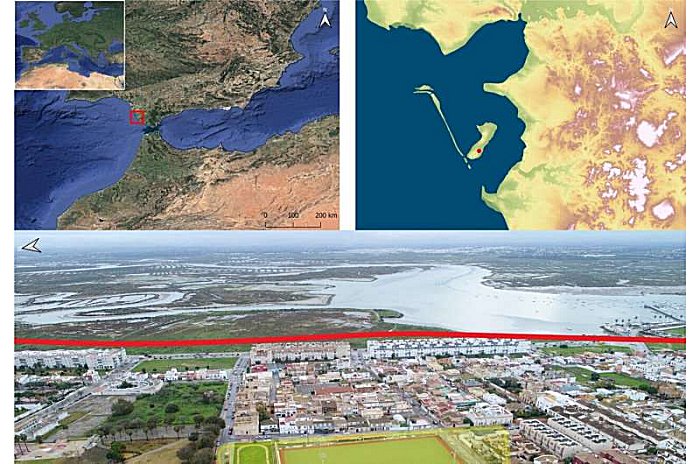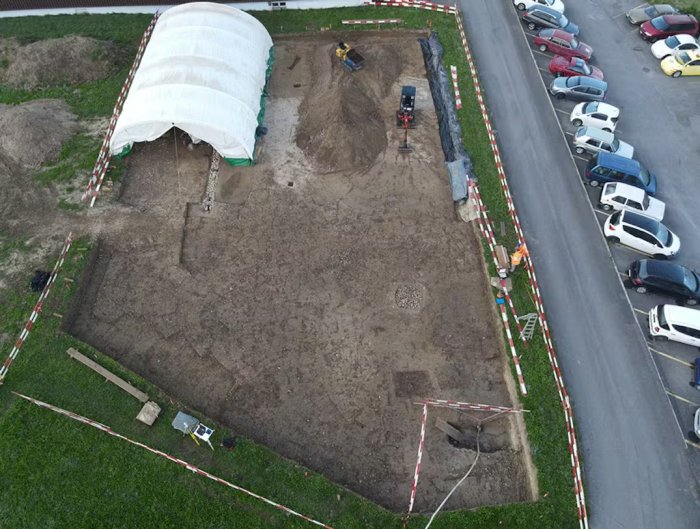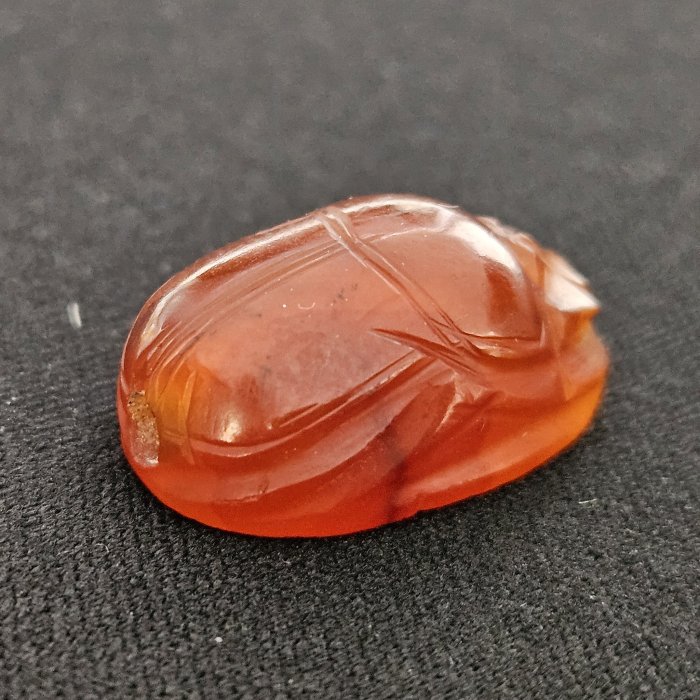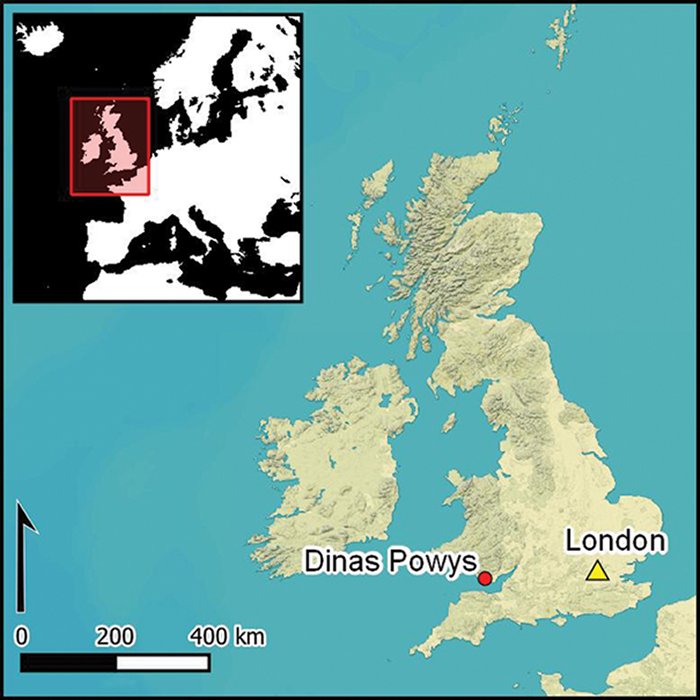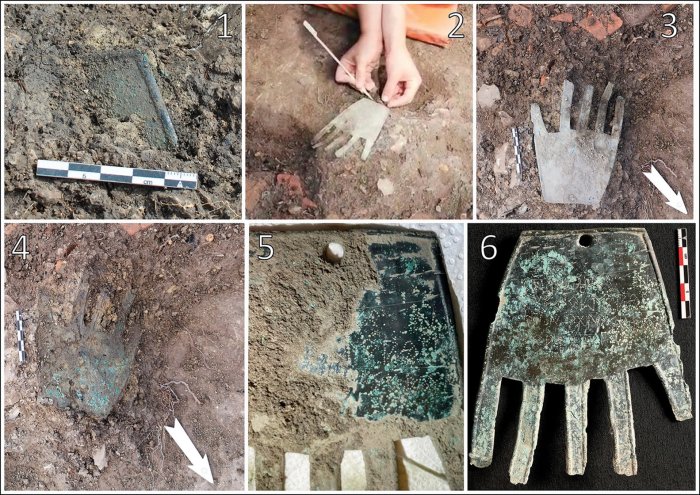A. Sutherland – AncientPages.com – Midas was king of the city of Pessinus in the country of Phrygia, and is remembered in Greek mythology for his ability to turn everything he touched into gold.
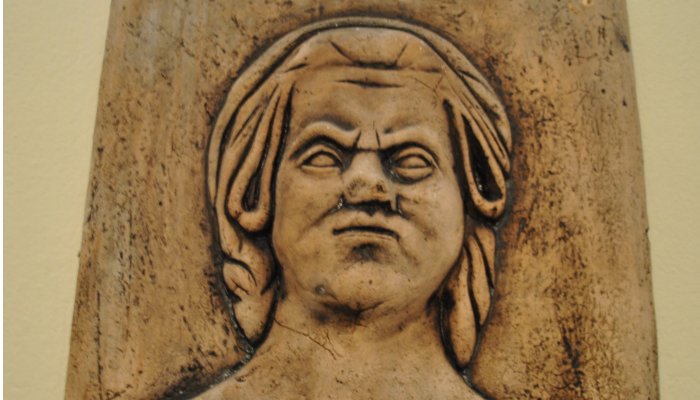
King Midas in the Gordion Museum. Gordion Museum, Ankara, Turkey – CC BY-SA 3.0
He had large estates and a grand, marvelous palace with a beautiful rose garden. In this garden, Dionysus, the god of wine, found Silenus, his good friend, teacher, and foster father, drunk. Silenus was the oldest satyr known as the god of the forest, drunkenness, and winemaking in Greek mythology.
Dionysus carried his friend to Midas’ palace, where the king received him well. At first, Silenus was expected to stay only for a few hours, but he remained in the palace for a whole week, entertaining Midas and his friends with songs and stories.
Grateful for Midas’ hospitality and helpfulness, Dionysus wanted to fulfill one of the wishes the king could think of. Midas wished everything he touched would turn gold because what he loved best in the world was gold. He had plenty of his own, but he could not accept the thought of anyone else having any. So, he got his greatest desire fulfilled. At the time, he did not understand that it was not a gift or blessing but a curse.
Suddenly, all things began to turn into gold. Midas was so excited that he sprang to his palace and touched walls, draperies, statues, columns, and other objects, including plants and beautiful roses, in the garden.
Momentarily, everything around him turned into gold.
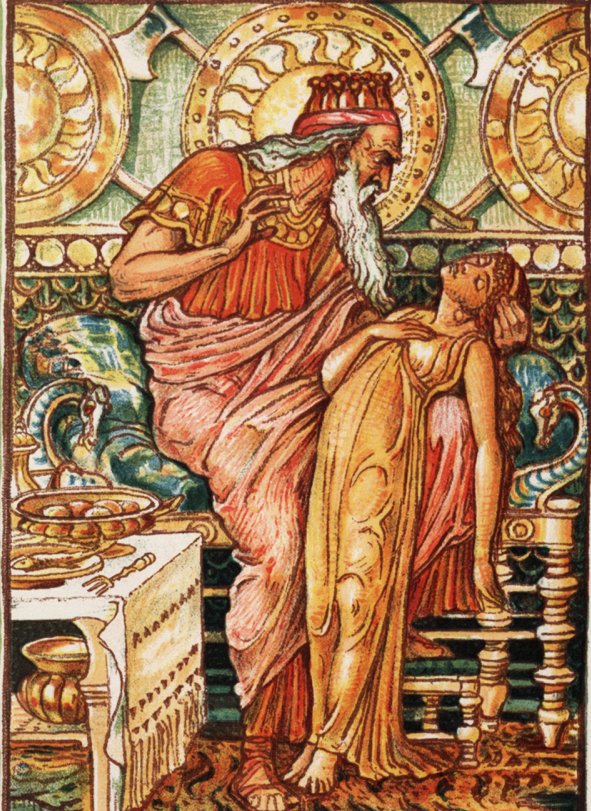
King Midas with his daughter, from A Wonder Book for Boys and Girls by Nathaniel Hawthorne Walter Crane – Library of Congress – Public Domain
Soon, his entire palace shone, and not the sun was responsible for this change but gold that began to dominate in everything around Midas.
It was undoubtedly an extraordinary power in Midas’s hands; he was excited and impressed, and it was time for a celebration. He ordered the servants to set a feast on the table, but the food and drink also turned into gold when touched by the king’s hands.
In A Wonder-Book for Girls and Boys (1852), Nathaniel Hawthorne tells that one day, Midas’s daughter came to him from the garden very upset about the roses that had lost their fragrance and become stiff.
“Father, Father, what has happened to the roses?”
“Are they not pretty, my dear?”
“No! They’re ugly! They’re horrid and sharp, and I can’t smell them anymore. What happened?”
“Who did the magic? “I did.” “Unmagic it, then! I hate these roses.” She began to cry. “Don’t cry,” he said, stroking her head. “Stop crying, and I will give you a golden doll with a gold-leaf dress and tiny golden shoes.” She stopped crying, but she could not answer him anymore.
“Her eyes stiffened and froze into place. The little blue vein in her neck stopped pulsing. She was a statue, a figure of pale gold standing in the garden path with a lifted face. Her tears were tiny golden beads on her golden cheeks…”
He looked at her and said: “This is unfortunate. I’m sorry it happened. “
His little daughter turned into yet another golden object in his vicinity.
Now, the great king of Phrygia began to hate the gift he had desired to possess so much. The ability to change everything to gold gave him more trouble and disappointment than joy.
He prayed to Dionysus, begging the god to take back his gift.
Dionysus listened to his prayer and told him to wash himself in Pactolus, a small river in Turkey. It flowed through ancient Sardis in Lydia. Then, whatever he put into the water would be reversed of the touch.
Midas thanked and went to the river as fast as he could. When he touched the water, the magical power went to the river instead, and the sand at the bottom turned to gold. It is said that gold can still be found in the sand around the river Pactolus.
Tired of all unpleasant experiences with gold, Midas moved out into the countryside, and there, among the ordinary people, he began to worship the god Pan, the god of shepherds.
One day, Midas was one of the judges in a famous Olympian music compeтιтion. When this primarily intriguing contest finished, Apollo was pronounced the winner by all the involved judges except one, Midas, king of Phrygia, who disagreed with the judge’s decision.
Perhaps he had the bad taste to prefer the vulgar and primitive tones of the Pan’s pipe to Apollo’s lyre’s enhanced and sweet melodies. Midas, the only judge in the contest, was punished due to his most unusual atтιтude toward the music of Apollo.
Judging him as a stupid man who lacked human ears for music, Apollo gave him the ears of an ᴀss.
People talked about donkey ears anyway. But after a while, people always have something new to gossip about, and Midas’ ears were hardly a number one gossip. Legend says that Apollo later restored Midas’ ears to completely normal again and that Midas also learned to like Apollo’s lyre.
Written by – A. Sutherland – AncientPages.com Senior Staff Writer
Copyright © AncientPages.com All rights reserved. This material may not be published, broadcast, rewritten, or redistributed in whole or part without the written permission of AncientPages.com
Expand for references
References:
Graves, R. The Greek Myths
Walsh, Nicos. Greek Mythology
Fritz Graf, Apollo
Evslin, Bernard. Heroes, Gods and Monsters of the Greek Myths
Wikipedia
